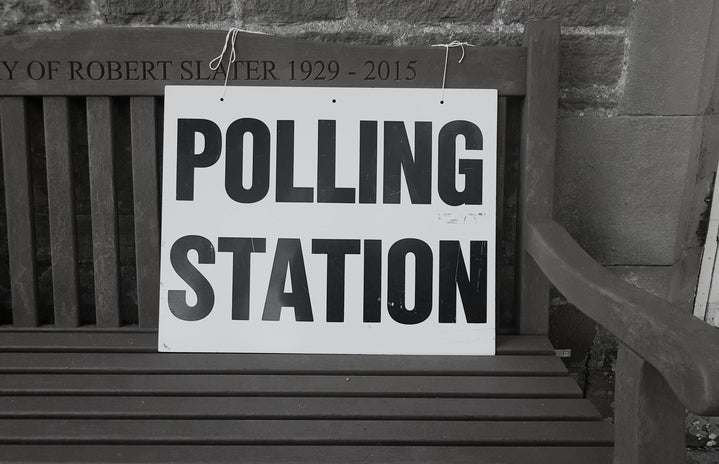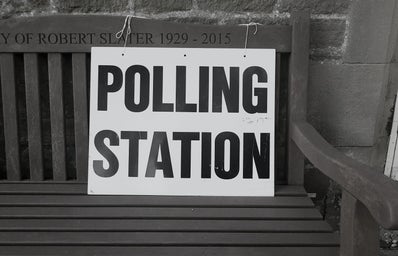The by-election in Rochdale at the end of February was a dramatic one, with the founder of the Workers Party of Britain, George Galloway, beating his Conservative, Labour and Liberal Democrat counterparts to electoral victory. The scale of his success was similarly staggering: Galloway received more votes than the three mainstream party candidates put together, with none of them even placing second—a position that went to an independent candidate, David Anthony Tully.
In a Downing Street press conference on March 1st, Conservative Prime Minister Rishi Sunak called Galloway’s victory ‘beyond alarming’; his comments included claims that Galloway ‘glorifies Hezbollah’ (A Lebanese political party and militant group, deemed a terrorist organisation by the British government). When Sunak’s remarks were put to Galloway by a Sky News journalist, however, he was unperturbed, responding, ‘don’t talk to me as if…the things that he says are somehow meant to awe me. They may awe you, they don’t awe me.’
A veteran figure on the far-left fringes of British Politics, Galloway will be the only MP for the Workers Party of Britain in Westminster. Yet with the next general election scheduled to take place by January 2025 at the very latest, the result suggests a frustration amongst voters with the state of British politics.
‘Beyond alarming’
Rishi Sunak
Rochdale is traditionally a Labour constituency (though for periods in recent decades it has also been held by the Liberal Democrats). The by-election was triggered by the death of its Labour MP, Tony Lloyd, in January. Even before votes had been cast, it had been the sight of controversy: in mid-February, Labour withdrew support for their candidate, Azhar Ali, over his comments regarding Israel’s attacks on Gaza. Though the party initially defended him, after he claimed that Israel had allowed the attacks by Hamas on October 7th as a pretext to invade Gaza, it withdrew after a recording was publicized in which Ali apparently blames ‘Jewish quarters’ of the media for fueling criticism of another pro-Palestinian MP suspended by Labour.
The context of Israel’s ongoing genocide in Gaza is inextricable from George Galloway’s election in Rochdale, a constituency with a large Muslim population. Galloway is outspokenly pro-Palestinian, and he ran a pro-Palestinian campaign; after securing his victory, he addressed the Labour Party leader, announcing, ‘Keir Starmer, this is for Gaza’, and warning that Labour will ‘pay a high price’ for its part in ‘enabling, encouraging, and covering for’ the violence there.
Undoubtedly, events in Gaza have highlighted a friction between many British voters, and the politicians supposedly representing them: despite 66% of the British public supporting an immediate ceasefire to the fighting—with hundreds of thousands taking to the streets in demonstration of this—both Rishi Sunak’s Conservatives and Keir Starmer’s Labour repeatedly refused to advocate for an immediate ceasefire themselves (often instead calling for softer measures, such as ‘humanitarian pause’). A parliamentary motion by the SNP for the King’s Speech to be amended to include a call for a ceasefire was defeated in November, with Conservative MPs voting against, and Starmer instructing Labour MPs to abstain from voting—though 56 Labour MPs rebelled to vote in favour of the amendment, and members of Starmer’s shadow cabinet, including Jess Phillips, resigned over his stance.
For those in England particularly, the convergence of the two main parties’ stance on Gaza restricts their choice as voters: if none of the mainstream parties offer a reasonably different position on this issue, who are voters who want to see a ceasefire meant to support? For voters in the Rochdale by-election, at least—enter George Galloway. The gap that his left-wing, populist campaign successfully filled was created by Labour’s move towards the political centre on certain issues, and particularly its reaction to Israel’s attacks on Gaza.
‘Keir Starmer, this is for Gaza‘
George Galloway
The first-past-the-post system of British politics, which disproportionately rewards the two main parties, is by no means a new—or an accidental—feature. When it’s understood that only the Conservatives or Labour could actually win an election, a vote for any other party might feel like either a protest, or a waste; the frustration this system produces, however, is aggravated when the platforms of the dominant parties appear too similar to one another, failing to represent a broad enough spectrum of values. Though Azhar Ali is a pro-Palestinian MP, the party he represented did not back him; the outcome in Rochdale highlights the gap between Britain’s voters (especially those on the left), and the party platforms they’re offered.
Yet at the same time, the wider repercussions of George Galloway’s election shouldn’t be overstated. Rochdale’s overall turnout for the by-election stood at only 39.7%, as compared to 60.1% at the last general election, and like the rest of the country, it will undergo another election within the next year. When the electorate has to vote in a way that considers who they want to see in Downing Street, rather than the more localized nature of a by-election, the reality of the two-party system will likely regain significance.
The takeaway from Rochdale, then, isn’t that British politics as we know it is likely to collapse around our ears at any moment; Galloway’s election itself, surprising though it is, won’t single-handedly dismantle the system. Rather, the spectre of Galloway on the left, like that of Reform UK on the right, is merely symptomatic of an underlying dissatisfaction, amongst sections of the electorate, with Britain’s political status quo. While it may not prevent most voters playing the ‘two-party’ game of politics at the next election, it remains a rift that the political mainstream is unlikely to genuinely reconcile with any time soon.


